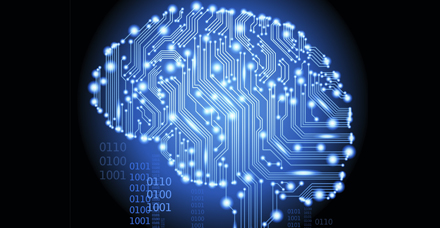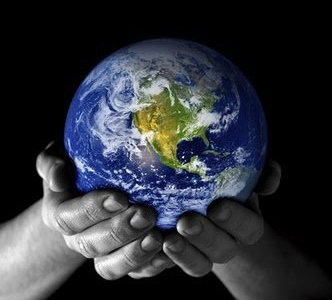What is humanity’s relationship to technology? And what does it mean to be technologically wise?
Dr. Allen Kanner, co-founder of the Campaign for a Commercial-Free Childhood and co-editor of the book Ecopsychology, recently wrote an article in Tikkun magazine on technological wisdom, in which he describes the illusion of technological neutrality and the need to shift from technological progress to technological wisdom. Allen warns that “our species is at a technological crux, a moment when it needs to examine its ability to create as never before. Collectively, we are having a manic-depressive reaction to our inventions. On the one hand, we can but marvel with giddy anticipation as scientific and technical wizards spin out one stunning innovation after another. On the other, we are horrified with disbelief as we witness these same innovations destroying complex life on the planet. Obviously, we need to find a more even keel, an internal equilibrium in which we can fully absorb all the wonders and dangers of each invention and then decide, with full use of our rational faculties, if the gains are worth the losses. This would be the beginning of technological wisdom.”
We have become dependent on our technology to exist, and have come to believe that only technological solutions can solve our problems. The technology we develop is wholly dependent on our intentions. By relying on tools instead of improving our understanding, we are travelling on a path to destruction and separation. Wisdom is found in the users of tools, not in the technology itself.
Futurist Neil Postman described our society’s relationship to technology in his book Technopoly: “Technopoly is a state of culture. It is also a state of mind. It consists in the deification of technology, which means that the culture seeks its authorization in technology, finds its satisfactions in technology, and takes its orders from technology. This requires the development of a new kind of social order, and of necessity leads to the rapid dissolution of much that is associated with traditional beliefs. Those who feel most comfortable in Technopoly are those who are convinced that technological progress is humanity’s supreme achievement and the instrument by which our most profound dilemmas may be solved.”

But technology is also responsible for most of our problems. Modern technology requires many natural resources, found spread throughout the planet, to be harvested, processed, and distributed. The use of a tool can not be separated from its physical origin, just like humans can not be separated from our natural environment or from the tools we use. Allen wrote, “Thus, the value of any technology is only partially determined by the security, comfort, and convenience it confers. We need also to know if it draws us closer to the land, to each other, and to the cosmos. These relational, political, and spiritual/ethical dimensions are always present in our inventions and are part of their inherent pull.”
Whether we have technology or not is not an issue, humans are inherently designed for making and using tools. It is a specialty which should be respected and nurtured. We are developing the tools to do anything we can imagine, but our imagination is caught in an isolated web of fear and greed. Open source technologies represent a different approach, enabling collective intention to determine what is made and how. There is also a global movement to be more conscious of what is needed to produce technology, exploring ways to work sustainably in harmony with our environment. But most importantly, we need to re-connect with the rest of our planet, and stop replacing that connection with material objects and anger.
“At present, much that we manufacture is, in a word, junk. As consumer society transforms into a technologically wise one, far fewer things will be made, allowing those items that remain to be of much higher quality and to be produced under considerably more favorable circumstances than the modern factory affords. People who work with wood, metal, or stone will know the local forests, caves, and mountains from which their materials come,” says Allen. “Our technological potential is unfulfilled, and unfulfillable, when it is divorced from the spirit of the Earth.”
The Native American perspective on technology is explained by Jeannette Armstrong, co-founder and director of the En’owkin School of International Writing, the first accredited Canadian writing school operated solely by and for Aboriginal people. In Ecopsychology, Jeannette shares the technological wisdom of her people, the Okanagan: “We are tiny and unknowledgeable in our individual selves, it is the whole-Earth part of us that contains immense knowledge. Over the generations of human life, we have come to discern small parts of that knowledge, and humans house this internally. The way we act in our human capacity has significant effect on the Earth because it is said that we are the hands of the spirit, in that we can fashion Earth pieces with that knowledge and therefore transform the Earth. It is our most powerful potential, and so we are told that we are responsible for the Earth. We are keepers of the Earth because we are Earth.”
Dr. Kanner explained, “Human beings are destined to mold the Earth. Gifted with exquisite hands, passionate imaginations, and boundless curiosity about how things work, we need to tinker, prod, poke, and build. It is in our genes, and our souls, to engage so completely with our physical surroundings that we alter them, just as the abundant fertility of the planet could not help but produce us. Indeed, our propensity to construct and redo may be a flamboyant expression of the generativity of our evolving world, which in its four-and-a-half-billion-year history has never ceased to cast itself anew. To be against technology is to deny a crucial part of human nature. Today, however, it has become extremely difficult to fully appreciate or ponder our ability to make things. Instead, we are caught in a tragically flawed philosophy called “technological progress” that blinds us to the numerous choices we have, the various ways open to us to become both wise and creative technological beings. It is as if we had decided that the only proper use of our legs is to run, and run as hard as we can, at every possible moment.”
“At present, our modern machines are polluting the Earth, increasing the pace and stress of daily life, and transforming our environment faster than we can comprehend. We are experiencing one wave of future shock after another and cannot seem to slow down long enough to figure out why. We can only have faith that the next set of advances—nanotechnology, bioengineering, virtual reality—will magically save us.
As an ecopsychologist, I am interested in the personal relationships we each have with the natural and built worlds and how these relationships interact. Our many inventions and devices are not only altering the face of the planet, but also radically changing our connection to nature, to each other, and to ourselves. These are profound changes worthy of our most serious attention. Yet at present there is no “psychology of technology,” if by this we mean a systematic examination of the myriad influences of each innovation on our psyches, our relationships, our identities. This is a curious state of affairs, especially since psychology has turned its magnifying glass onto so many other aspects of our lives. But my profession is itself caught up in the sweep of technological progress and assumes that each “advancement” is ultimately positive, inevitable, or both,” Allen continued.
“An alternative view, and one that ushers in the full psychological complexity of technology, conceives of our capacity to mold the Earth as engaging in a two-way relationship. As we enter into this relationship, we will be transformed. In this act of transformation, certain questions emerge. What happens to us, and the world, when we do not try to build it up as fast as possible? What happens when we do? Is there such a thing as technological walking, skipping, strolling, and meandering, as well as running, and how do our experience and treatment of our selves and surroundings differ in each of these modes?”
As we become more aware, and more connected with the rest of the planet and beyond, our technology will follow. We, not our tools, are the captains on this living, moving planet. And just as our technology becomes an extension of our hands and eyes and brain, humans are the hands and eyes and brain of the Earth itself.
In a sense, it could be said that humanity is a technology of this planet to better care for and understand itself.

